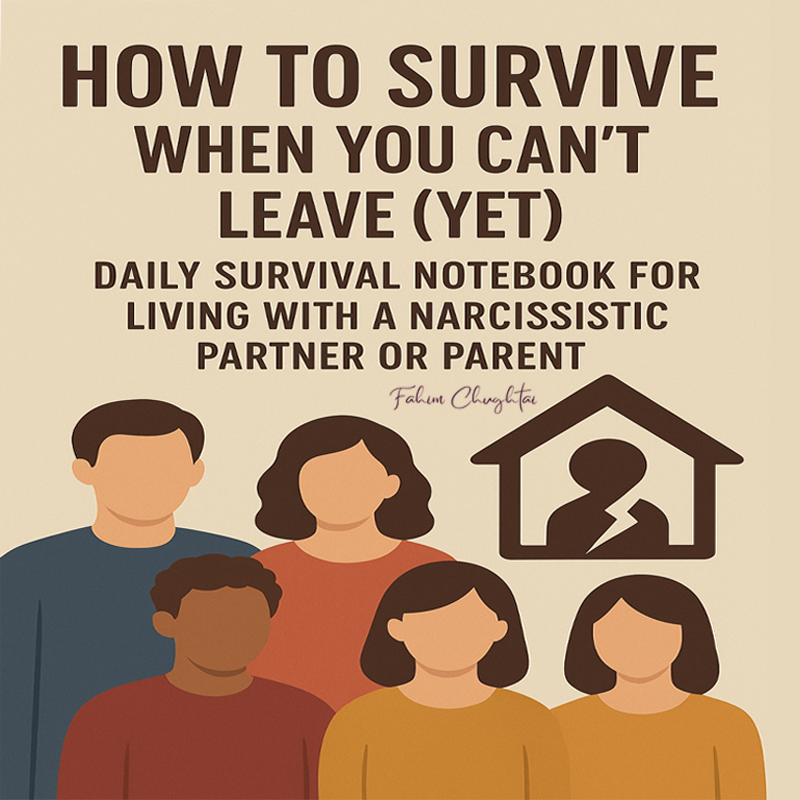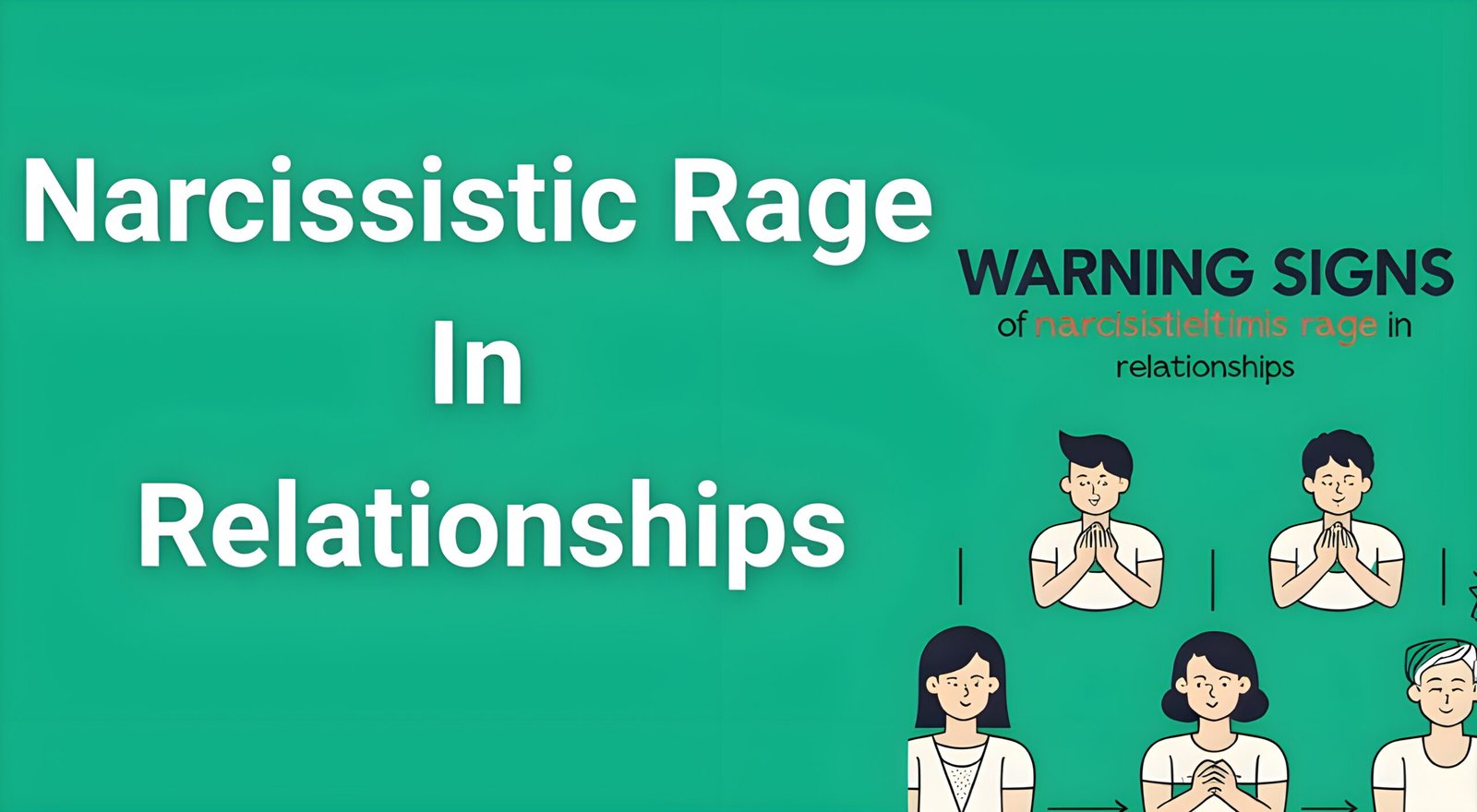That nagging feeling in your gut won’t go away. Something feels wrong in your relationship, but you can’t quite put your finger on what it is. You find yourself walking on eggshells, questioning your own memories, and wondering if you’re the problem. If you’re searching for clarity about the 10 unmistakable signs of narcissism, you’re likely dealing with someone whose behavior has left you confused and emotionally drained.
- Understanding Narcissism: More Than Just Self-Love
- The 10 Unmistakable Signs of Narcissism
- Still Second-Guessing?
- You See the Abuse. Now What?
- The Hidden Cost: How Narcissistic Abuse Affects You
- Breaking Free: What You Can Do
- Understanding Trauma Bonds: Why It’s Hard to Leave
- When You Can’t Leave: Survival Strategies
- The Path Forward: Reclaiming Your Life
- Frequently Asked Questions
- Conclusion: Your Truth Matters
Recognizing narcissistic behavior isn’t always obvious, especially when the person can be charming and convincing to others. However, understanding these clear warning signs can help you protect your mental health and make informed decisions about your relationships. Whether you’re dealing with a romantic partner, family member, boss, or friend, these red flags of narcissistic personality traits are crucial to recognize.
Understanding Narcissism: More Than Just Self-Love
Before diving into the specific signs, it’s essential to understand that narcissism exists on a spectrum. While everyone occasionally displays self-centered behavior, narcissistic personality disorder (NPD) is a serious mental health condition affecting approximately 1% of the population. People with narcissistic traits consistently show patterns of grandiosity, lack of empathy, and exploitative behavior that significantly impacts their relationships.
The difference between occasional selfishness and true narcissistic behavior lies in consistency, intensity, and impact. Narcissists don’t just have bad days – they consistently demonstrate these toxic patterns that leave others feeling manipulated, confused, and emotionally damaged.
The 10 Unmistakable Signs of Narcissism
1. Grandiose Sense of Self-Importance
One of the most recognizable signs of narcissism is an inflated sense of self-worth that goes far beyond healthy confidence. Narcissists genuinely believe they are superior to others and expect constant recognition for their perceived greatness, even when their achievements don’t warrant such praise.
This grandiosity manifests in several ways:
- Exaggerating accomplishments and talents
- Expecting others to automatically recognize their superiority
- Becoming angry when they don’t receive the admiration they believe they deserve
- Taking credit for others’ achievements
- Minimizing others’ successes to maintain their perceived status
You might notice them constantly talking about their accomplishments, name-dropping important people they know, or claiming expertise in areas where they have little knowledge. This isn’t simple bragging – it’s a deep-seated belief that they are inherently better than everyone else.
2. Preoccupation with Fantasies of Success and Power
Narcissistic individuals often live in elaborate fantasies about unlimited success, power, brilliance, beauty, or ideal love. These fantasies consume significant mental energy and distort their perception of reality. They may spend hours daydreaming about becoming famous, incredibly wealthy, or finding the perfect partner who will worship them.
These unrealistic fantasies serve as a defense mechanism against feelings of inadequacy, but they also prevent narcissists from engaging meaningfully with reality. They might:
- Make grandiose plans without realistic steps to achieve them
- Become bitter when reality doesn’t match their fantasies
- Dismiss practical advice as “thinking too small”
- Expect others to help make their fantasies come true without reciprocation
3. Belief in Their Own Uniqueness and Superiority
Narcissistic behavior includes the firm belief that they are special and unique, deserving of association only with other high-status individuals or institutions. This isn’t about having preferences – it’s about genuinely believing they are too important for “ordinary” people or situations.
Signs of this trait include:
- Only wanting to associate with people they perceive as successful or important
- Expecting special treatment everywhere they go
- Becoming indignant when treated like everyone else
- Looking down on service workers or anyone they perceive as beneath them
- Trying to insert themselves into exclusive social circles or events
This superiority complex creates impossible standards for relationships and prevents genuine connections with others. They see people as either useful for enhancing their status or beneath their notice entirely.
4. Constant Need for Excessive Admiration
While everyone enjoys compliments and recognition, narcissists have an insatiable hunger for admiration that goes far beyond normal human needs. This isn’t about occasionally seeking validation – it’s about requiring constant praise and attention to function emotionally.
This excessive need for admiration shows up as:
- Fishing for compliments in every conversation
- Becoming upset or angry when they don’t receive enough praise
- Dominating conversations to steer them toward their accomplishments
- Feeling genuinely confused when others don’t automatically admire them
- Using others’ admiration as proof of their superiority
The exhausting part about this narcissistic trait is that no amount of admiration is ever enough. Even when you praise them, they quickly need more, creating an endless cycle that leaves their loved ones feeling drained and used.
Still Second-Guessing?
With the Clarity Report, I personally analyze your situation and show you exactly what’s happening — no sugarcoating, no gaslighting.
5. Sense of Entitlement
Narcissistic personalities carry an unwavering belief that they deserve special treatment, privileges, and automatic compliance with their expectations. This entitlement isn’t based on what they’ve earned – it’s based on who they believe they are inherently.
Entitlement manifests in various ways:
- Expecting others to drop everything to meet their needs
- Believing rules don’t apply to them
- Taking the best seat, parking spot, or last piece of food without asking
- Assuming others will pay for them or do favors without reciprocating
- Becoming angry when their expectations aren’t automatically met
This sense of entitlement creates significant relationship problems because narcissists genuinely don’t understand why others might have needs or boundaries that conflict with their desires.
6. Interpersonally Exploitative Behavior
One of the most damaging signs of narcissistic abuse is how narcissists view and treat other people. They see others primarily as tools to be used for their own benefit rather than as individuals with their own needs, feelings, and rights.
Exploitative behavior includes:
- Using emotional manipulation to get what they want
- Taking advantage of others’ generosity without reciprocating
- Lying or deceiving to achieve their goals
- Pressuring others to make sacrifices they wouldn’t make themselves
- Discarding people once they’re no longer useful
This exploitation often starts subtly and increases over time. Narcissists are skilled at identifying and targeting empathetic people who are willing to give them the benefit of the doubt, making it easier to take advantage of their kindness.
7. Profound Lack of Empathy
Perhaps the most destructive aspect of narcissistic personality disorder is the inability to recognize or care about others’ feelings. While narcissists may intellectually understand that others have emotions, they struggle to genuinely connect with or care about those feelings.
This lack of empathy shows up as:
- Remaining unmoved by others’ pain or distress
- Becoming annoyed when others express negative emotions
- Inability to comfort others effectively
- Making decisions without considering the impact on others
- Dismissing others’ feelings as overreactions or weaknesses
This trait makes meaningful relationships nearly impossible because emotional intimacy requires the ability to understand and care about another person’s inner world.
8. Envy and Belief Others Are Envious of Them
Narcissistic individuals exist in a constant state of comparison with others, either envying what others have or believing that everyone envies them. This creates a toxic dynamic where they can never be genuinely happy for others or secure in their own achievements.
Signs of this envious mindset include:
- Minimizing others’ successes or finding flaws in their achievements
- Attributing others’ success to luck or unfair advantages
- Assuming others are jealous when they don’t receive expected attention
- Sabotaging others when they perceive them as competition
- Taking credit for others’ ideas or accomplishments
This pattern prevents narcissists from developing genuine friendships or professional relationships because they view everyone as either competition or a threat to their perceived superiority.
9. Arrogant and Haughty Behavior
The way narcissistic people interact with others often reveals their true nature through consistently arrogant and condescending behavior. This isn’t occasional rudeness – it’s a persistent pattern of treating others as inferior beings.
Arrogant behaviors include:
- Speaking to others with condescension or contempt
- Interrupting others or dismissing their opinions
- Making snide comments or subtle insults
- Acting bored or irritated when others talk about themselves
- Using body language that conveys superiority (eye-rolling, sighing, looking away)
This arrogance often surprises people because narcissists can be charming when they want something, but their true attitude toward others emerges consistently in their daily interactions.
10. Inability to Handle Criticism
The final unmistakable sign of narcissism is an extreme sensitivity to any form of criticism, feedback, or correction. While most people may feel defensive when criticized, narcissists experience criticism as a fundamental attack on their identity and worth.
Their reaction to criticism includes:
- Explosive anger or rage over minor feedback
- Turning criticism back on the critic (“You’re just jealous”)
- Complete shutdown or silent treatment
- Escalating minor disagreements into major conflicts
- Holding grudges and seeking revenge for perceived slights
This inability to handle criticism makes growth and healthy relationship dynamics impossible because constructive feedback is essential for personal development and genuine intimacy.
You See the Abuse. Now What?
The Stuck Survival Workbook shows you how to protect your mind, keep your kids safe, and secretly plan for freedom while you’re still living with the narcissist.

The Hidden Cost: How Narcissistic Abuse Affects You
Living with or being close to someone displaying these signs of narcissism takes a severe toll on your mental health and well-being. The constant manipulation, gaslighting, and emotional abuse create a complex web of psychological damage that many people don’t recognize until they’re deeply affected.
Trauma bonding often develops in relationships with narcissists, creating an addictive cycle where the intermittent kindness makes the abuse more tolerable. This neurological response makes it incredibly difficult to leave these relationships, even when you logically understand they’re harmful.
Common effects of narcissistic abuse include:
- Chronic self-doubt and questioning your own perceptions
- Anxiety, depression, and complex trauma symptoms
- Isolation from friends and family members
- Physical symptoms like headaches, insomnia, and digestive issues
- Loss of identity and difficulty making decisions independently
If you’re experiencing these effects, it’s crucial to understand that your reactions are normal responses to abnormal treatment. The confusion and emotional exhaustion you feel are direct results of being in a relationship with someone who consistently displays narcissistic personality traits.
Breaking Free: What You Can Do
Recognizing these 10 unmistakable signs of narcissism is the first step toward protecting yourself and making informed decisions about your relationships. However, understanding what you’re dealing with is different from knowing how to handle it effectively.
If you’ve identified multiple signs in someone important to you, consider these steps:
Set and maintain boundaries around what behaviors you will and won’t accept. Narcissists will test these boundaries repeatedly, so consistency is crucial for your protection and sanity.
Document incidents of manipulation, gaslighting, or abuse. Narcissists often deny or minimize their behavior, making you question your own memories and perceptions.
Seek support from friends, family members, or professionals who understand narcissistic abuse. Isolation is one of the narcissist’s most powerful tools, so rebuilding your support network is essential.
Prioritize your healing by addressing the psychological impact of the relationship. The effects of narcissistic abuse don’t disappear immediately, even after recognizing the problem.
For those ready to take concrete steps toward healing, our Narcissistic Abuse Clarity Report provides personalized analysis of your specific situation, helping you understand exactly what you’re dealing with and develop a clear plan for moving forward. This comprehensive assessment has helped over 1,000 people gain clarity and begin their healing journey.
Understanding Trauma Bonds: Why It’s Hard to Leave
One of the most confusing aspects of recognizing narcissistic behavior is understanding why you feel unable to leave or set boundaries, even when you clearly see the problems. This isn’t a weakness in your character – it’s the result of trauma bonding, a psychological phenomenon that creates addiction-like attachment to the very person harming you.
Trauma bonds form through the cycle of abuse and intermittent reinforcement. The narcissist alternates between cruelty and kindness, creating a neurological addiction stronger than cocaine. Your brain begins to crave the relief that comes with their occasional kindness, making the relationship feel impossible to leave despite the pain.
Breaking trauma bonds requires more than willpower – it requires understanding the neurological processes involved and using specific strategies to rewire your brain’s response patterns. Our 30-Day Trauma Bond Recovery Workbook provides a science-based, day-by-day system that over 2,000 survivors have used to break free permanently from these addictive relationship patterns.
When You Can’t Leave: Survival Strategies
Sometimes recognizing signs of narcissistic abuse comes at a time when leaving isn’t immediately possible due to financial constraints, child custody issues, or other practical barriers. This doesn’t mean you’re helpless – there are specific strategies for protecting your mental health while you plan your next steps.
Gray rock method involves becoming as uninteresting as possible during interactions, giving the narcissist less material to use against you. Information diet means sharing minimal personal information that could be used for manipulation. Emotional detachment techniques help you maintain psychological distance even when physical distance isn’t possible.
These survival techniques require specific knowledge and practice to implement effectively. If you’re in a situation where you need to stay but want to protect yourself, understanding these methods can make a significant difference in your daily experience and long-term well-being.
The Path Forward: Reclaiming Your Life
Recognizing these unmistakable signs of narcissism marks the beginning of your journey back to yourself. The person you were before this relationship – confident, decisive, trusting in your own perceptions – that person is still inside you, waiting to reemerge.
Recovery from narcissistic abuse isn’t linear, and it’s not quick. Your brain needs time to heal from the constant stress and manipulation. Your sense of self needs rebuilding after being systematically torn down. Your ability to trust others (and yourself) needs careful restoration.
But recovery is absolutely possible. Thousands of people have walked this path before you and emerged stronger, wiser, and more capable of healthy relationships than they ever imagined possible.
The key is having the right information, support, and strategies for your specific situation. Generic advice often falls short because narcissistic abuse is complex and personal. What works for one person’s healing journey may not work for another’s circumstances.
Frequently Asked Questions
Q: Can someone display these signs occasionally without being a narcissist?
A: Yes, everyone can show narcissistic traits during stress or difficult periods. The key difference is consistency and impact. True narcissistic behavior is persistent, pervasive, and significantly damages relationships over time.
Q: Is it possible for narcissists to change or seek help?
A: While personality change is possible, it requires the person to acknowledge their behavior and commit to long-term therapy. Unfortunately, most narcissists don’t believe they have a problem and rarely seek help voluntarily.
Q: How can I protect my children from a narcissistic parent?
A: Focus on providing emotional validation, teaching them to trust their perceptions, and modeling healthy boundaries. Professional guidance is crucial for co-parenting with a narcissist while protecting your children’s psychological well-being.
Q: What’s the difference between narcissistic traits and narcissistic personality disorder?
A: NPD is a clinical diagnosis requiring at least five specific criteria that significantly impair functioning. Narcissistic traits can exist without meeting the full diagnostic criteria but still create relationship problems.
Q: Why do I feel addicted to someone who treats me badly?
A: This is trauma bonding, a neurological response to intermittent reinforcement. The cycle of cruelty and kindness creates brain chemistry similar to drug addiction, making the relationship feel impossible to leave.
Q: How long does recovery from narcissistic abuse take?
A: Recovery timelines vary significantly based on the duration and severity of abuse, your support system, and access to appropriate resources. Many people notice initial relief within weeks but may need months or years for complete healing.
Conclusion: Your Truth Matters
If you’ve recognized multiple signs of narcissism in someone important to you, trust your instincts. Your feelings of confusion, exhaustion, and self-doubt aren’t signs of weakness – they’re normal reactions to abnormal treatment.
You deserve relationships built on mutual respect, genuine empathy, and healthy communication. You deserve to have your feelings validated rather than dismissed. You deserve to feel secure in your own perceptions rather than constantly questioned and confused.
The road ahead may feel overwhelming, but remember that recognizing the problem is the hardest part. Now that you understand what you’re dealing with, you can make informed decisions about how to protect yourself and begin healing.
Your life, your peace of mind, and your emotional well-being are worth fighting for. These 10 unmistakable signs of narcissism aren’t just abstract concepts – they’re tools for recognizing toxic behavior and reclaiming your power.
The person reading this has already survived the worst part. You’ve endured the confusion, gaslighting, and cycles of hope and despair. Now it’s time to take that strength and use it to build something better for yourself.
Your freedom from narcissistic abuse starts with understanding what you’re dealing with. Armed with this knowledge, you can begin the journey back to yourself – back to the person you were meant to be before someone else’s dysfunction dimmed your light.
You are not crazy. You are not oversensitive. You are not asking for too much. You are recognizing toxicity and choosing to protect yourself. That takes incredible courage and strength.
Your healing journey begins now.







Good info, I am a narcistic abuse survivor and lived through over 20 years of hell. Once you have managed to set boundaries you will eventually see the evil for what it really is. Sad fact is narcistic abuse affects our children so much, sometimes it splits families up and healing for all parties becomes a long slow process (if it happens at all). Prayers for all that are waking up and finding themselves all over again. It takes a lot of effort and tears but very much worth it!
Thank you so much for sharing this — your words carry the weight of lived truth. 💔 Twenty years of survival shows unimaginable strength, and you’re right: boundaries are often the turning point where the mask finally slips and the abuse is seen for what it is. The pain it causes children and families is devastating, and healing rarely looks neat or fast. But the fact that you’ve walked through that fire and are now rebuilding is a beacon of hope for others still trapped in the fog. Sending you respect and solidarity on your continued healing journey. 🙏